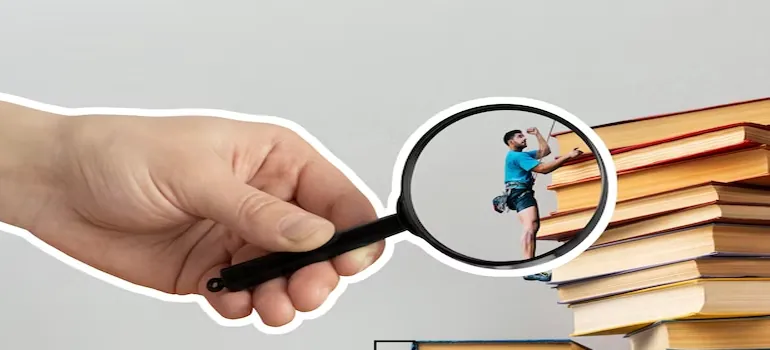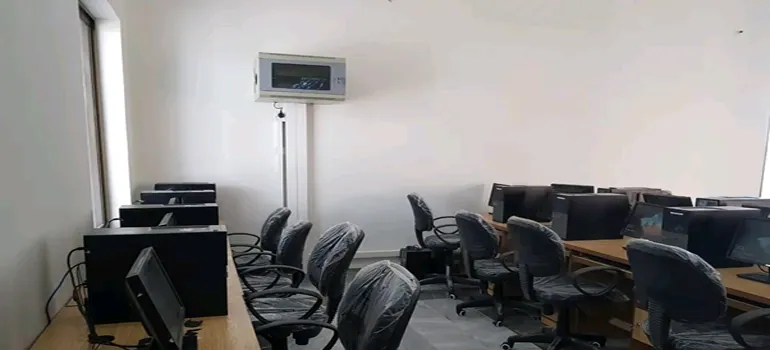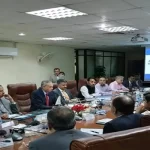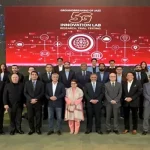
Educational changes in Pakistan
Every country’s success is based on its educational system, and Pakistan is no exception. Pakistan has made tremendous progress in recent years toward enhancing its educational system and making it more inclusive and accessible. In this post, we’ll examine the most recent changes and advancements in Pakistan’s educational system and talk about the difficulties and opportunities it will likely encounter in the years to come.
Pakistan’s role in education
Education is essential for determining the future of a nation. In Pakistan, educating the populace also involves encouraging critical thinking, creativity, and a feeling of duty in addition to knowledge acquisition. It serves as a link between people and economic opportunities and contributes to the creation of a more just society.
Recent Changes in Policy
- Advertisement -
Pakistan has seen several policy changes recently to modernize its educational system. The Single National Curriculum (SNC) was one of the most significant developments. Superior Colleges To guarantee that every student obtains a consistent and excellent education, the SNC aims to standardize the curriculum throughout all public and private educational institutions. This action is anticipated to lessen the differences in educational standards and foster a sense of national identity.
Technology Employed
Pakistan has acknowledged the necessity of incorporating technology into the educational system in light of its rapid advancements. The government made investments in digital infrastructure and educational technology as a result of the COVID-19 epidemic, which hastened the adoption of online learning. Education is now more accessible because of this shift, particularly in isolated and underserved Educational changes in Pakistan.
Difficulties in Education
Although there have been significant advancements, Pakistan’s education system continues to face several difficulties. A high dropout rate, inadequate facilities, a dearth of certified educators, and inadequate monitoring and assessment systems are a few of these. Gender differences also still exist, with fewer females obtaining high-quality education.
Parity of Gender
In Pakistan, gender parity is still a big challenge. To guarantee that females have equitable access to school, efforts are being made. By offering financial incentives to send their girls to school, programs like the Benazir Income Support Program (BISP) have supported families. IPRIPAK The administration wants to keep up these initiatives to further reduce the gender gap. Educational changes in Pakistan
Technical and Vocational Education
Pakistan is attempting to boost vocational and technical education because it recognizes its value. Technical institutes are being founded to give students real-world experience and improve their employability. This strengthens the labour force in the nation and lowers youth unemployment. Educational changes in Pakistan
Reforms in Higher Education
The system of higher education in Pakistan is likewise going through major transformations. The Higher Education Commission (HEC) is a dynamic organization that works hard to advance innovation and research while also raising the standard of higher education institutions. A competitive knowledge economy will be created, in part, through international cooperation and the development of strong industry ties.
Teacher Development and Training
The ability of the teachers has a significant impact on the quality of education. Pakistan is making investments in the education and training of educators in recognition of this. To improve instructors’ ability to teach, specialized training programs, workshops, and online resources are offered. This guarantee
Special Education and Inclusivity
Pakistan is working to make its educational system more inclusive. In an attempt to meet the needs of students with special needs, resources and specialized schools are being developed to meet their particular demands. The goal of this movement for inclusivity is to make society more equitable and diverse. Educational changes in Pakistan
Issues with Implementation
Even with these encouraging steps and advancements, Pakistan may find it difficult to execute educational reforms. Progress is frequently hampered by red tape, corruption, and a lack of accountability. For these reforms to be successful, grassroots implementation of policies must be done well. Educational changes in Pakistan
Public-Private Alliances
Pakistani education has advanced significantly as a result of public-private collaborations. Numerous private institutions and groups have been enhancing the calibre of helping to raise the standard of instruction. To better effectively address education difficulties, the government seeks to promote stronger partnerships between the public and private sectors. Educational changes in Pakistan
Difficulties with Funding
Pakistan’s budget allocation for this crucial sector is relatively low, making it difficult to finance education. The government must invest more in education to overcome this problem. A funding shortfall can be filled by looking into alternative financing methods including public-private partnerships and foreign grants.
The Way Future
Pakistan has to focus on a few important areas as it works to improve education in the country. These include raising the standard of instruction, fortifying the monitoring and assessment frameworks, increasing access to possibilities for technical and vocational training, and tackling Pakistan’s commitment to providing its population with high-quality education, as evidenced by the encouraging recent improvements in the education sector. A few positive moves include the implementation of the Single National Curriculum, heightened emphasis on technological integration, and initiatives to reduce gender inequality.
However, Pakistan still has a lot of obstacles to overcome in the sphere of education, and doing so would call for more funding, consistent work, and wise implementation. Pakistan is making significant strides in the direction of a society that is better educated and more empowered. Education is the key to success. Pakistan should anticipate a better educational future that will have a positive effect on its social and economic environment by resolving the obstacles and building on recent advancements.

FAQs
1. Firstly, what is the SNC, or Single National Curriculum?
In Pakistan, an effort known as the Single National Curriculum aims to provide a uniform educational experience by standardizing the curriculum across all public and private educational institutions.
2. What steps is Pakistan doing to alleviate the gender gap in education?
Through initiatives like the Benazir Income Support Program, which rewards families for sending their girls to school, Pakistan is attempting to promote gender parity.
3. What difficulties do Pakistani education reformers face?
The difficulties include red tape, corruption, and a lack of accountability, all of which frequently obstruct the successful implementation of educational policy.
Conclusion
In conclusion, the adoption of the Single National Curriculum, initiatives to address gender imbalances, and a push for more inclusive and practical education are all contributing to the reform of Pakistan’s educational system. Even while there are still many obstacles to overcome, such as problems with financing and execution, there is a clear commitment to raising educational standards.
Pakistan can surmount these obstacles and offer its kids a more promising future via persistent commitment, cooperation across the public and private domains, and a concentration on responsibility. The nation’s development can be greatly enhanced by Pakistan’s continued efforts in education, which is a potent tool for social and economic advancement and Educational changes in Pakistan.







